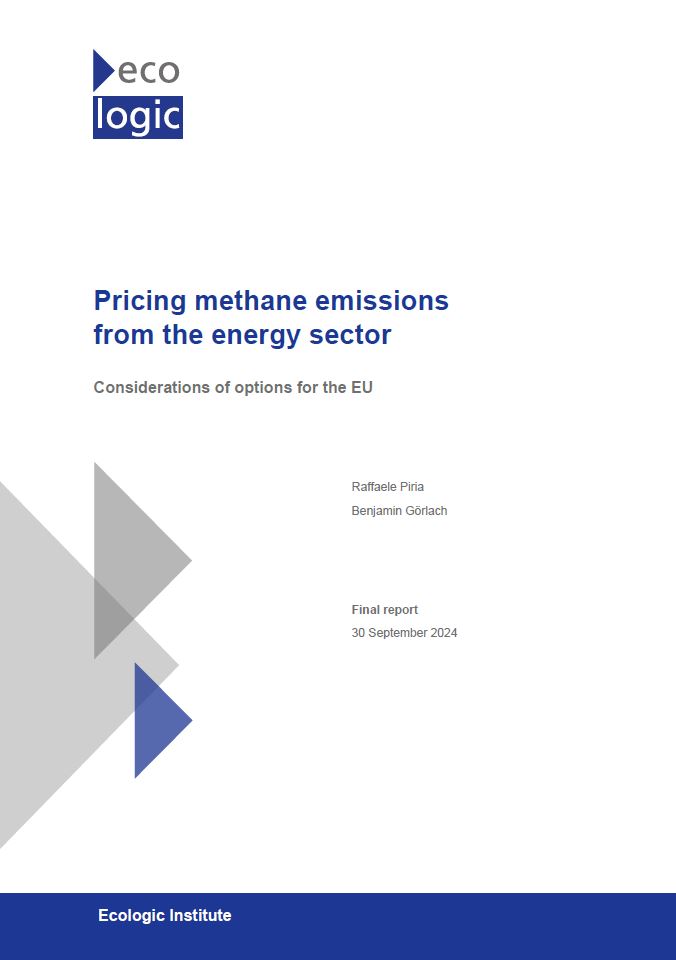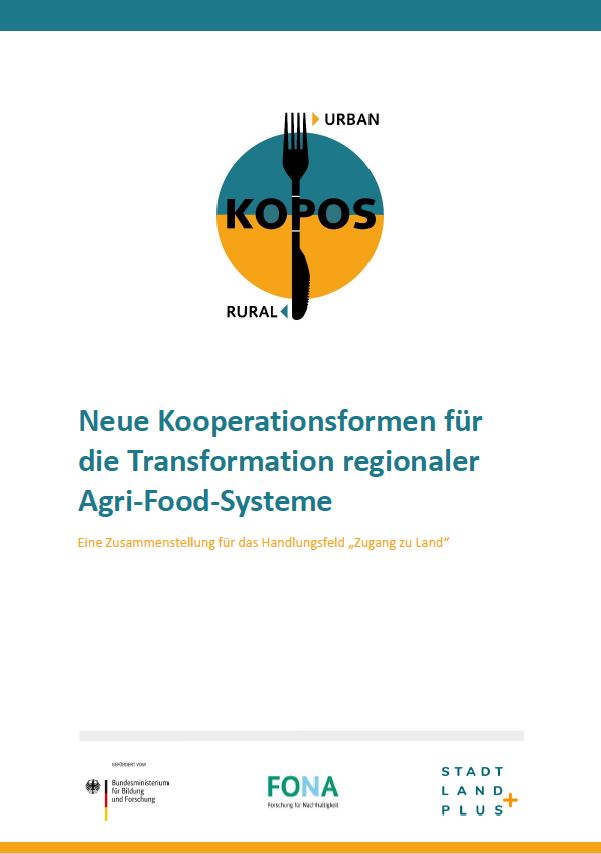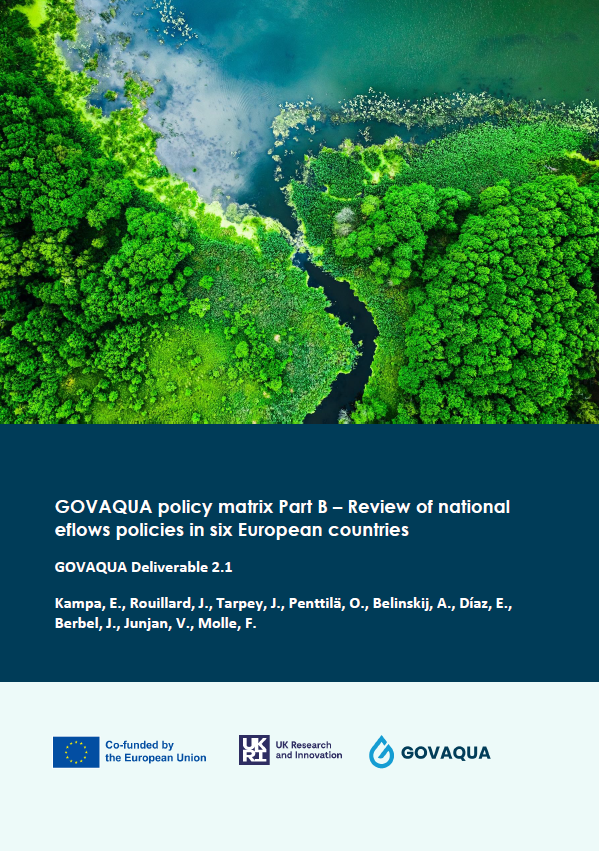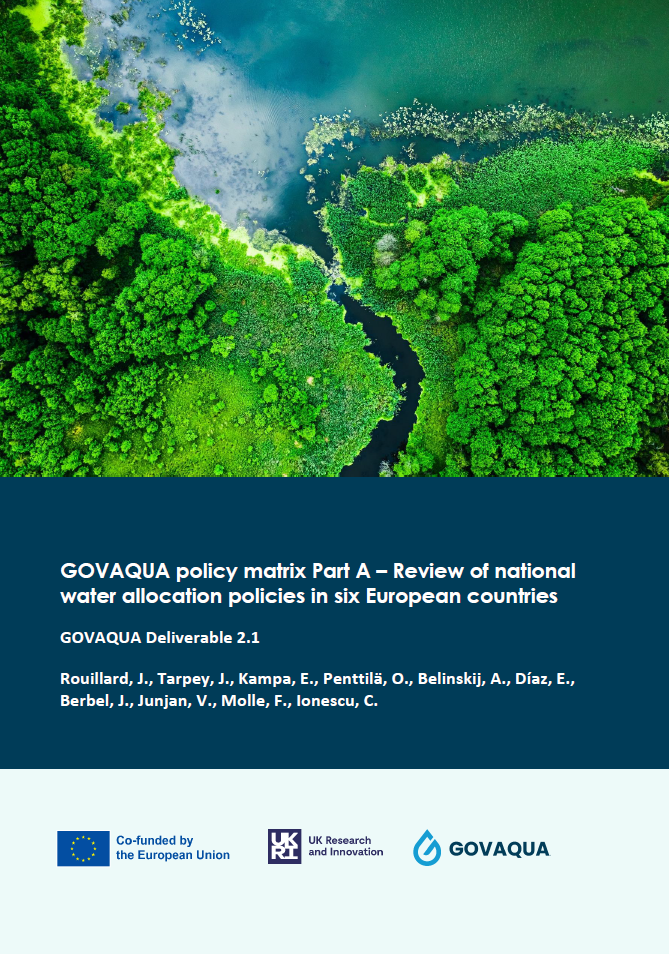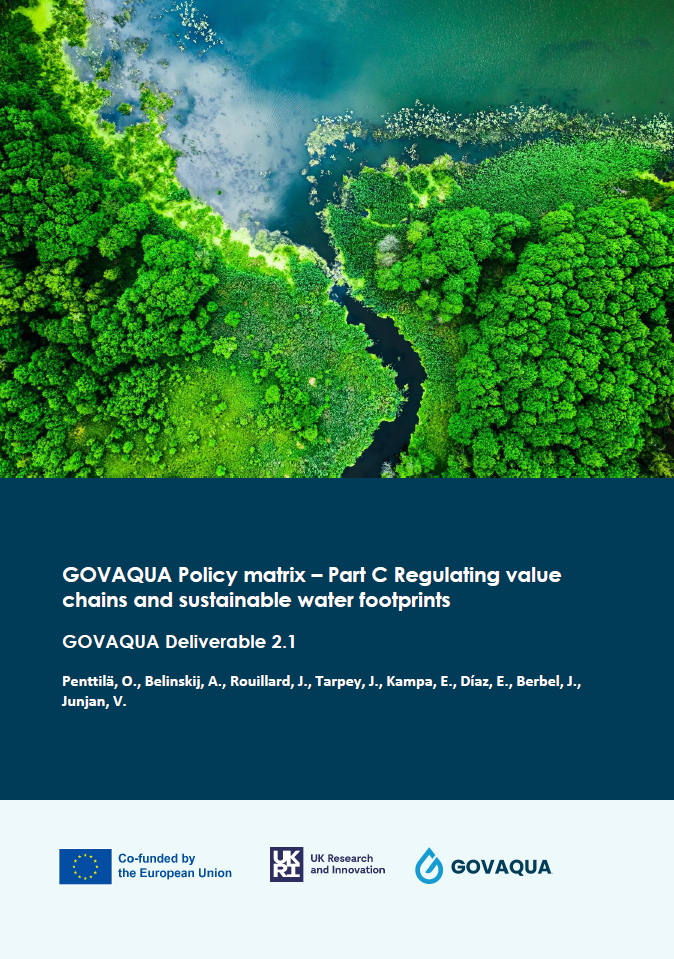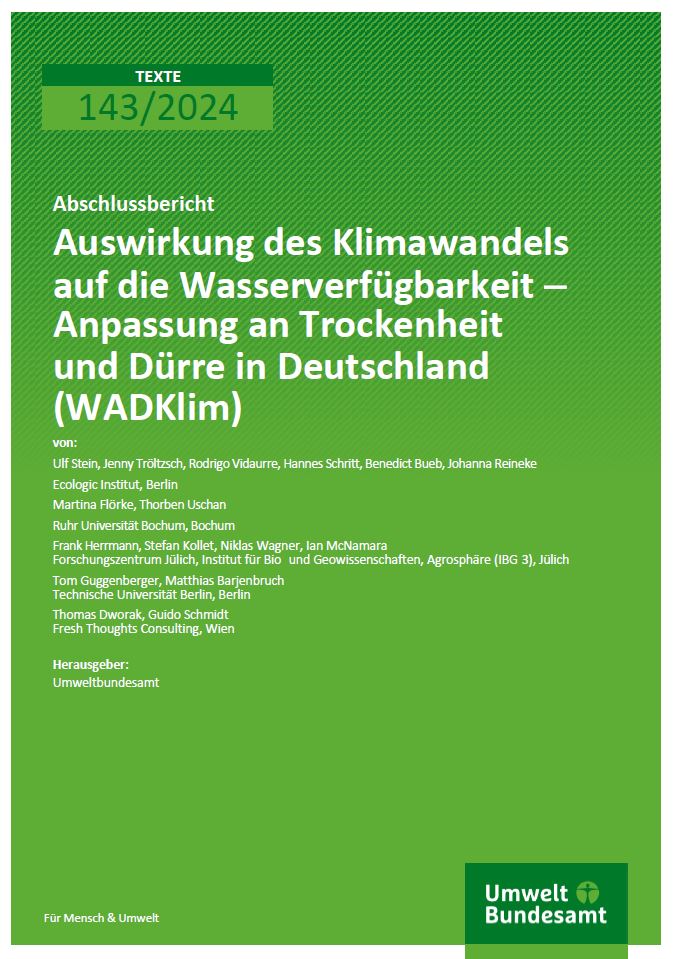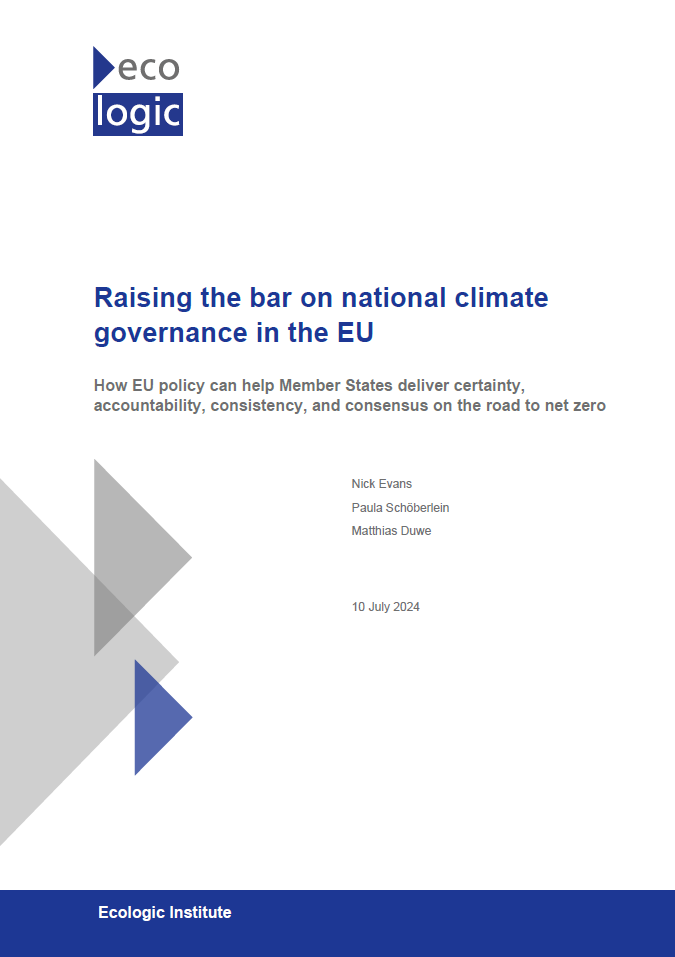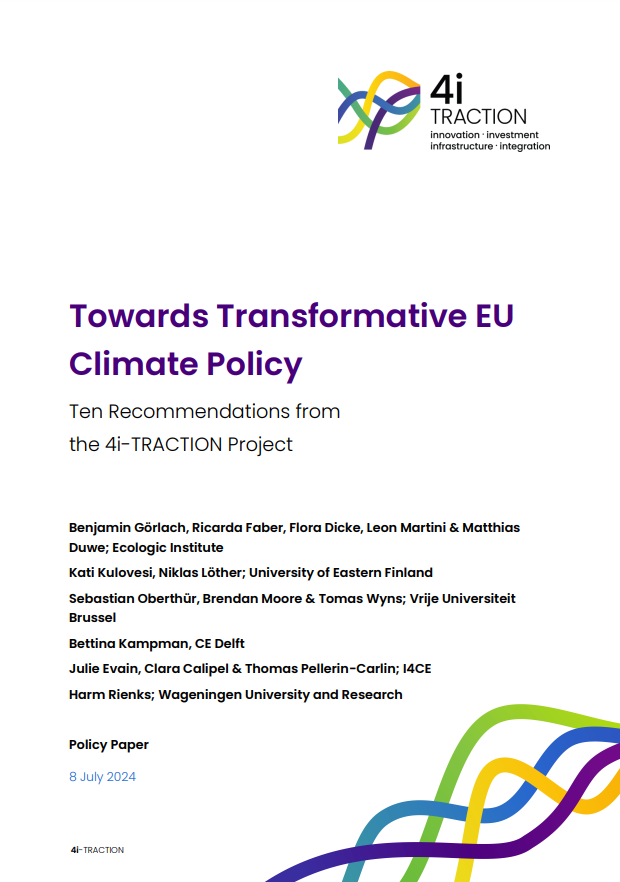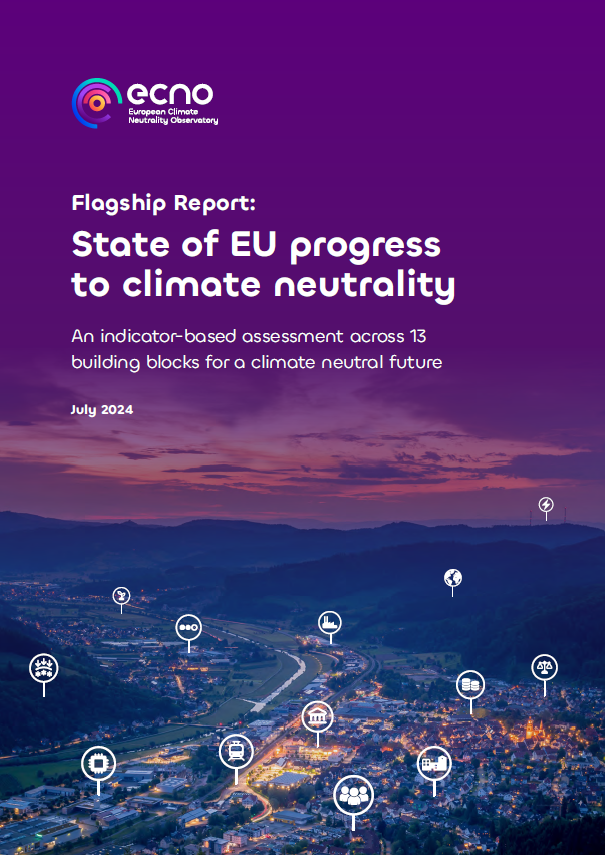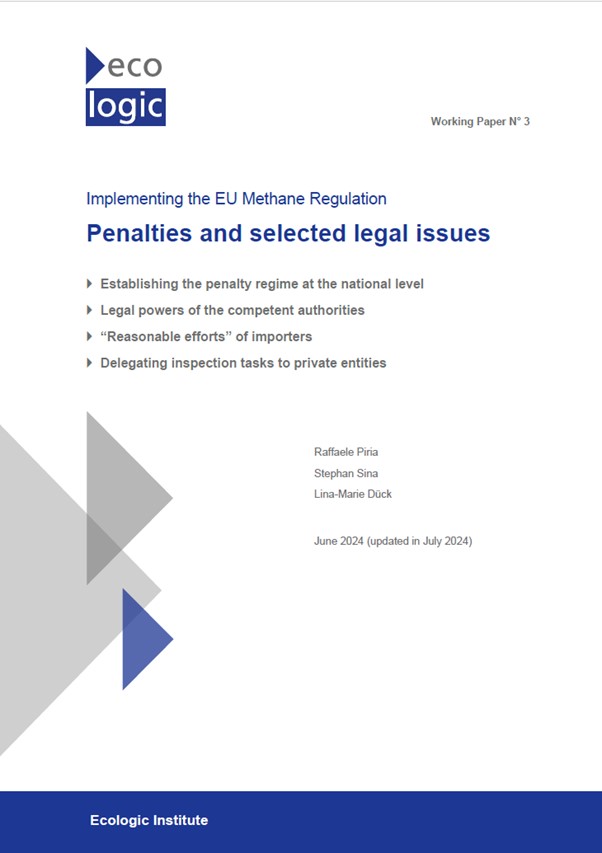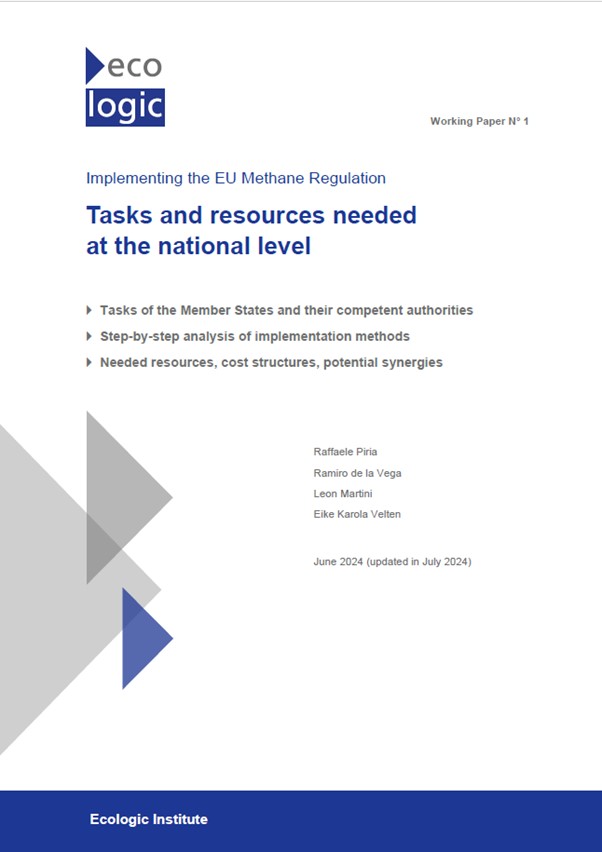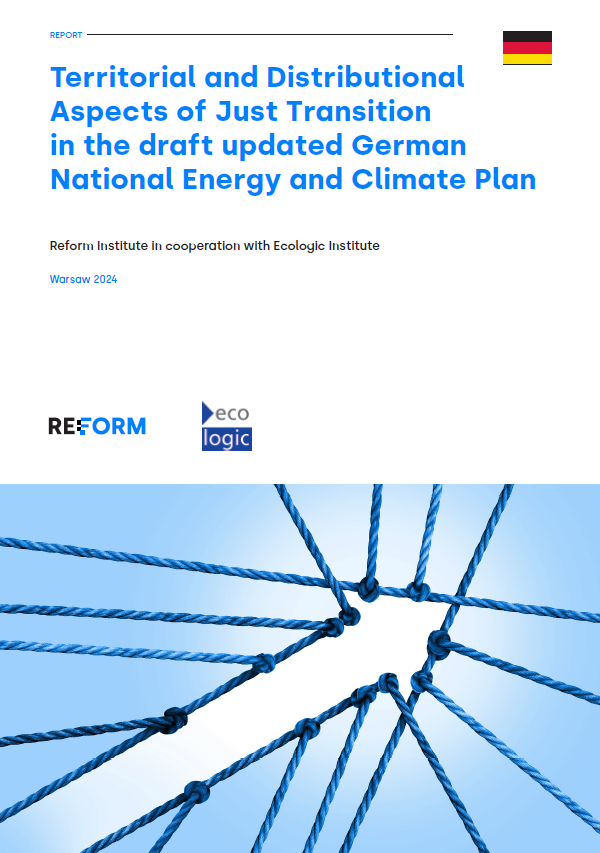Publication:Report
Publication:Report
Integrating Nature-Based Solutions in Policy and Planning
Findings and Lessons from INTERLACE Cities
Year
Read morePublication:Report
Neue Kooperationsformen für die Transformation regionaler Agri-Food-Systeme
Eine Zusammenstellung für das Handlungsfeld "Zugang zu Land"
Year
Read morePublication:Report
Review of National Eflows Policies in Six European Countries
GOVAQUA policy matrix Part B
Year
Read morePublication:Report
Review of National Water Allocation Policies in Six European Countries
GOVAQUA policy matrix Part A
Year
Read morePublication:Report
Regulating Value Chains and Sustainable Water Footprints
GOVAQUA policy matrix Part C
Year
Read morePublication:Report
Publication:Report
Raising the Bar on National Climate Governance in the EU
How EU policy can help Member States deliver certainty, accountability, consistency, and consensus on the road to net zero
Year
Read morePublication:Report
Publication:Report
Towards Transformative EU Climate Policy
Ten Recommendations from the 4i-TRACTION Project
Year
Read morePublication:Report
2024 Report: State of EU progress to climate neutrality
An indicator-based assessment across 13 building blocks
Year
Read morePublication:Report
Penalties and Selected Legal Issues
Implementing the EU Methane Regulation Working Paper N° 3
Year
Read morePublication:Report
Governance at the National Level: Responsible ministries and competent authorities
Implementing the EU Methane Regulation Working Paper N° 2
Year
Read morePublication:Report
Tasks and Resources Needed at the National Level
Implementing the EU Methane Regulation Working Paper N° 1
Year
Read more